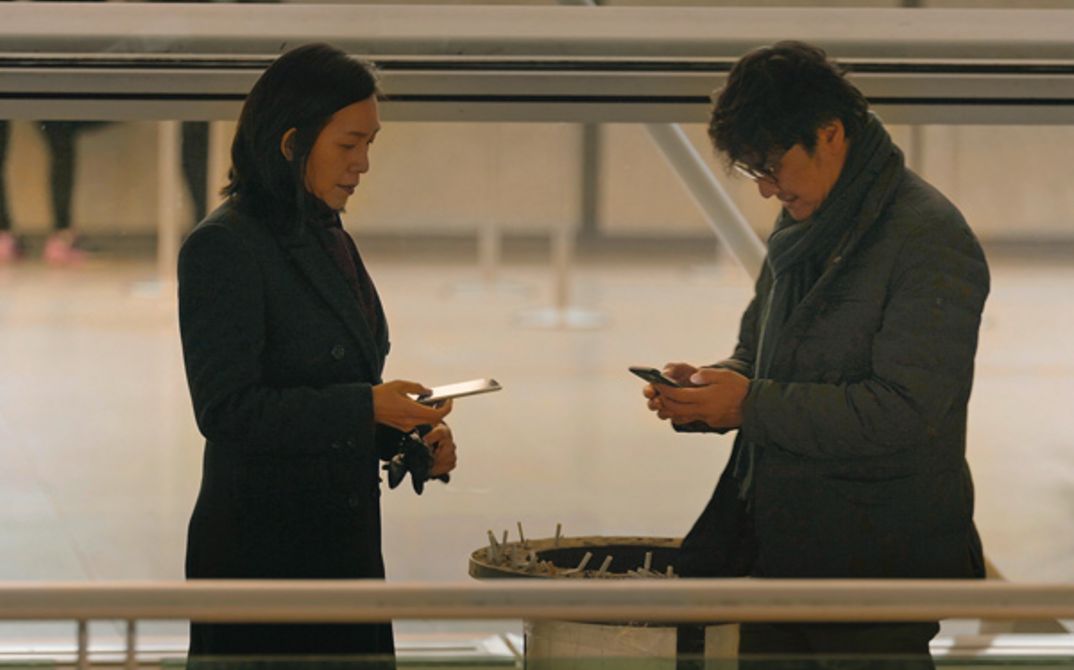A lost illusion
After making OLD LOVE, I actually, by coincidence in real life, met my old love after almost thirty years.
It was a strange experience. Her figure had changed substantially. She had become a normal older person, same as myself, but she acted in her familiar youthful manner, making me also behave the same as in the days when I was dating her. The scenery was nothing like a scene in a romantic movie. We immediately started quarrelling and criticising each other, and I realised that after all these years, I was chasing an illusion – a fantasy I had created in my mind.
I regretted having met her. Why did I answer her request to meet in the first place? I should have kept her in my fantasy world instead of bringing her back into my real world. But what can I do, when life is just a constant repeat of disappointments and regrets? (Park Kiyong)
Conversation with Park Kiyong: “The middle-aged Koreans are sandwiched”
Ansgar Vogt: Why is the story set around the Korean New Year’s festivities?
Park Kiyong: The New Year’s holiday is traditionally for family gatherings. Because the families of the main characters, Yoonhee and Jungsoo, are broken, the two are quite sad in the face of the upcoming celebrations.
In the foreground, OLD LOVE revolves around love that cannot be lived, since it only exists in memories. However, the film also depicts generational conflicts in contemporary Korean society.
I think the two main characters more or less represent contemporary Korean middle-aged people whose main concern is how to manage their financial issues. Money and health are the two core interests for the middle-aged, but money is more important. The middle-aged are sandwiched between the old and new generations, and they are lost between old and new values. They can only escape from it by discarding their own desires. But is this possible, when Korean society is driven by so many desires? If ‘live like a decent human being’ was the old value, the new one is: ‘fulfil your desire by any means necessary’. If it were up to me, I would change the education system and make it focus on teaching children to become decent human beings.
In your previous film, CAMEL(S) (Forum 2002) you worked with only a brief outline and character descriptions. Did you have a full screenplay for OLD LOVE?
I did write a full screenplay for applying for the KOFIC fund, but I didn’t show it to the actors. Every morning, I would explain to them what we would shoot for the day and then discussed how they would improvise the dialogue. I work this way to prevent the actors from getting to know too much about the story: I don't want them to know what will happen next and how the film will end. I want them to create the story as shooting proceeds; I want them to react to the situations instantly as the character; I want them to get as close as possible to the state of mind of the character. For OLD LOVE, I chose actors who are willing to challenge themselves, but many times they got scared during the shoot and would hold back to protect themselves. The biggest surprise this time was discovering Kim Moon-hee, who played the wife of the two main characters’ dying friend. I would like to work with her again.
What are the biggest differences between the screenplay you wrote and the completed film?
The story is more or less the same, but the method of delivering the feeling is quite different. I always try to follow my instinct at the shoot and get the best out of the given situation. I believe film is an organism and it changes all the time.
(Interview: Ansgar Vogt, January 2018)
